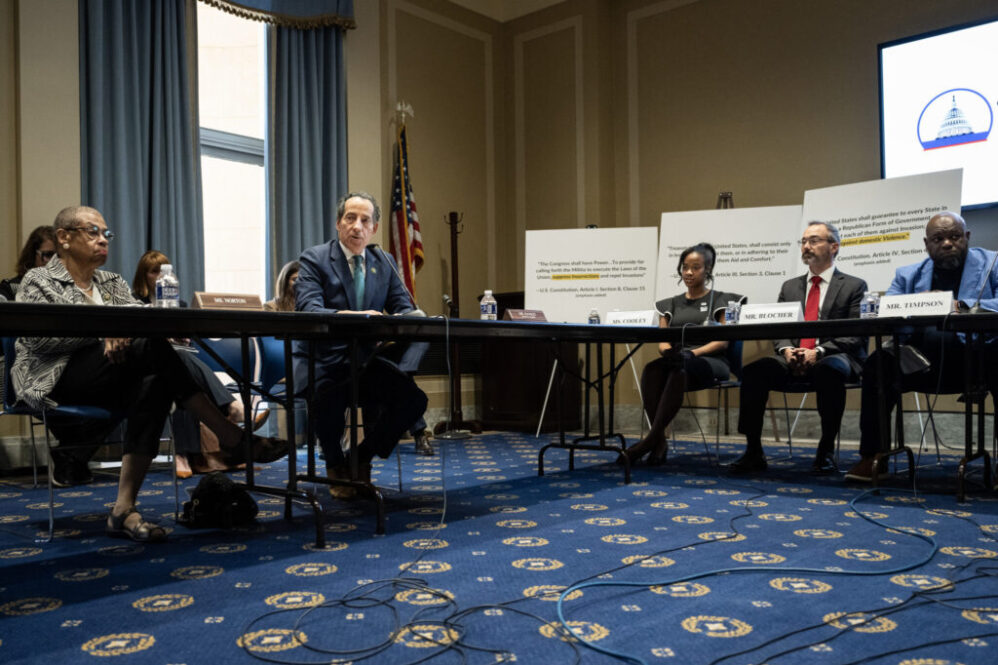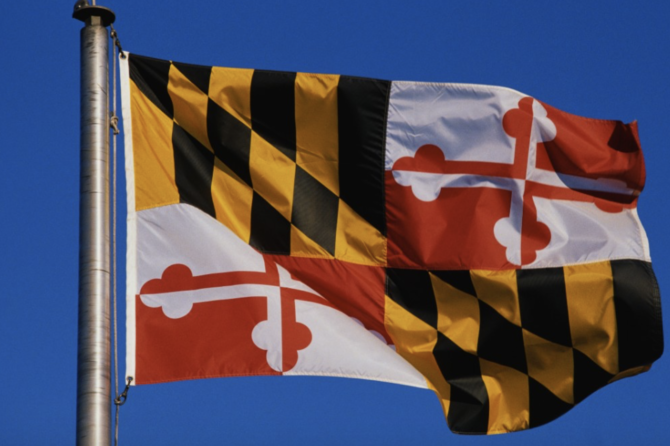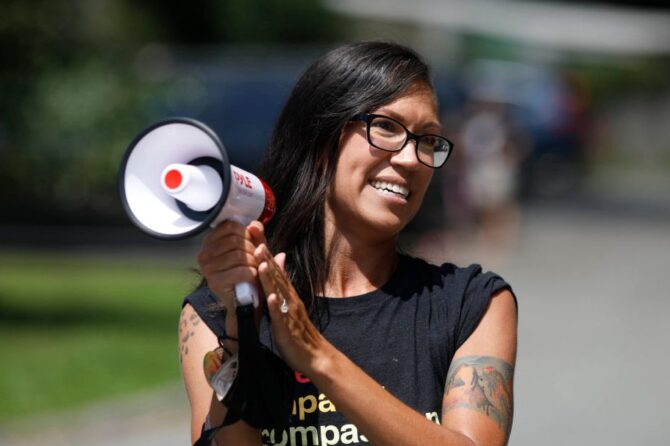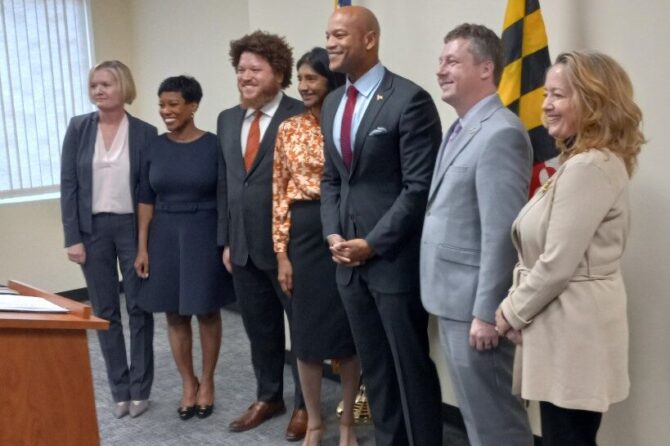MARYLAND MATTERS: U.S. House Democrats held a Monday roundtable forum on changing U.S. gun laws following a recent mass shooting in Maine, where 18 people were killed.
The top Democrat on the committee, Rep. Jamie Raskin (D-8th) invited witnesses to discuss gun violence solutions, and said that the gun industry lobby, the National Rifle Association and Republicans push back against gun reform.
“We’re going to examine the nationwide gun emergency that’s taking place, the endless rounds of gun violence and massacres that are plaguing our society,” Raskin said.
Some of those witnesses included gun safety advocates, educators, survivors of gun violence and people who seek to intervene in community violence.
“There is a light at the end of the tunnel with this issue,” Democratic Rep. Maxwell Alejandro Frost of Florida said. “The gun lobby is more afraid, now more than ever, as they see a multiracial, multigenerational army of Americans who are not willing to relent from the demand for common sense gun reform.”
Democrats on the committee who participated in the forum included Reps. Greg Casar of Texas, Eleanor Holmes Norton of the District of Columbia and Dan Goldman of New York.
Democrats said they opted to organize the roundtable after being turned down in their request for a formal hearing to Republicans who control the chamber. “We could not convince the majority to have a hearing about the state of the nation with respect to gun violence,” Raskin said.
Following the mass shooting in Maine, GOP House Speaker Mike Johnson of Louisiana pushed back on Democrats’ call for gun control measures and argued the appropriate response was prayer.
For years Democrats have tried to pass gun safety legislation. While the House has been able to do so, the Senate requires a 60-vote threshold and Democrats hold a razor-thin majority in the upper chamber.
Safer communities act
Following mass shootings in Buffalo, New York, and Uvalde, Texas, Congress passed the most comprehensive federal gun safety legislation in nearly 30 years, known as the Bipartisan Safer Communities Act.
In September, the White House announced the formation of an Office of Gun Violence Prevention to help state and local governments implement the Bipartisan Safer Communities Act.
This year alone, there have been 602 mass shootings, according to the Gun Violence Archive that tracks shootings in the U.S.
Kelly Sampson, senior counsel and director of racial justice at the Brady Center to Prevent Gun Violence, said that research there has found that a majority of Americans support universal background checks on guns.
“Despite what the gun lobby tries to make people think, gun violence prevention laws are widely popular,” Sampson said. “What we really need to do is continue to keep the pace of talking about what it looks like.”
Community intervention
James Timpson, who works with Community Violence Initiatives in Baltimore said that federal funding for gun violence needs to stretch over a longer period of time, and that funding that lasts six months or a year isn’t enough.
Timpson works with many young people and uses cognitive behavioral therapy, strategies to change thinking and behavior patterns. He said, realistically, “It takes at least 18 to 24 months before we start seeing sustained behavior change in young people.”
“To disrupt violence, we must heal trauma, the trauma our young people experience” he said.
Mariah Cooley, a 22-year-old graduate of Howard University, said that there needs to be a holistic approach to addressing community gun violence, such as adequate school funding, access to grocery stores and jobs that pay a livable wage.
“When people don’t have access to those basic needs, then they result in crime,” Cooley of Illinois said.
Cooley is a board member of March for Our Lives, a youth-led organization that advocates for gun control legislation at the state and federal level.
She first experienced gun violence at 13, when a peer was killed, and again at 16, when her cousin was killed.
A school principal’s view
Michelle Kefford, the principal at Marjory Stoneman Douglas High School in Parkland, Florida, said that because school shootings are so common, educators have come together to create a guide on how to deal with the aftermath of gun violence at schools.
Kefford became the principal of Marjory Stoneman Douglas High School after the mass shooting on Valentine’s Day in 2018, when 17 students and teachers were killed.
Firearm-related injuries are now the leading cause of death for children and adolescents in the United States, according to the New England Journal of Medicine.
Kefford said she is a member of the Principal Recovery Network, where 21 current and former principals reach out to schools that suffer a school shooting and help find best practices for recovery. Members include the principal of Sandy Hook Elementary School, in Newtown, Connecticut, where 20 children and six teachers were killed.
She said last year, there were hundreds of incidents of gunfire on school grounds.
According to the K-12 school shooting database, there were 305 incidences of shootings at schools.
“That is an average of a school shooting every other day,” Kefford said. “There’s so many shootings that there is simply not enough federal recovery funding and resources to go around for all of those shot in schools.”










